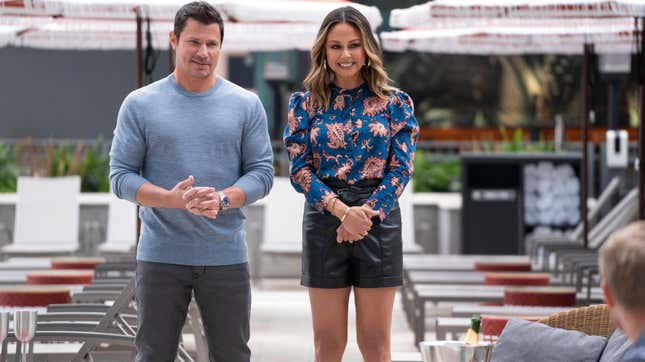‘The Ultimatum’ Is Pure Emotional Torture, And That’s Okay!
Let's dispense with the reality TV self-help bullshit.
EntertainmentTV

Aside from popping into the premiere episode of Love Is Blind to let us know that he was “obviously” Nick Lachey, the 98 Degrees crooner and his wife, model and TV host Vanessa Lachey, didn’t really do a ton of lifting as far as hosting duties go. But the couple plays a larger role in hosting their latest Netflix reality series, The Ultimatum: Marry or Move On. The new show offers yet another entertainingly experimental approach to finding love, one that the hosts and contestants insist is about emotional growth, and strengthening relationships. To which I say: Can we kindly cut the crap?
If watching people get engaged to someone they’ve never laid eyes on felt wild, The Ultimatum makes Love Is Blind seem positively tame. The series features six couples, and one member of each pair has issued their partner the ultimatum that gives the show its title: They either want to get engaged or call it quits. Before deciding on a path forward, the couples swap partners with the other couples and live together in their new pairings for three-week “trial marriages” to see if the grass is really greener on the other side.
-

-

-

-

-

-

-

-

-

-

-

-

-

-

-

-

-

-

-

-

-

-

-

-

-

-

-

-

-

-

-

-

-

-

-

-

-

-

-

-








































